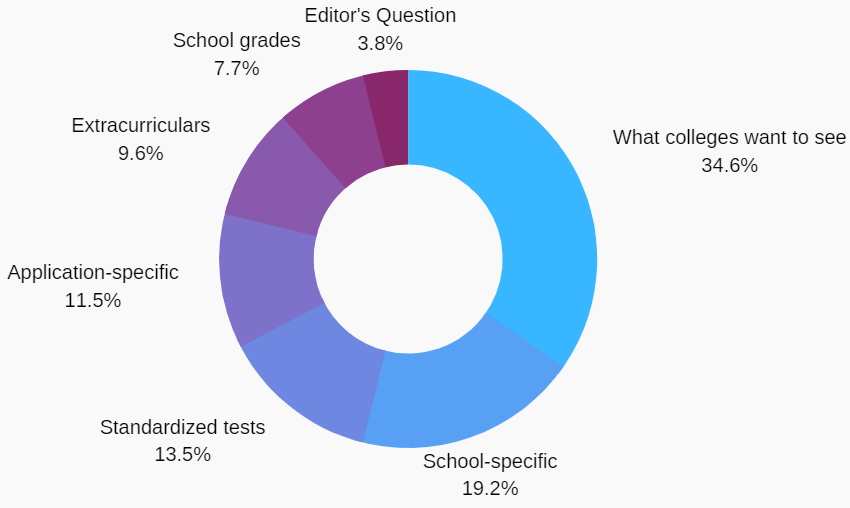Best Lessons OF THE YEAR

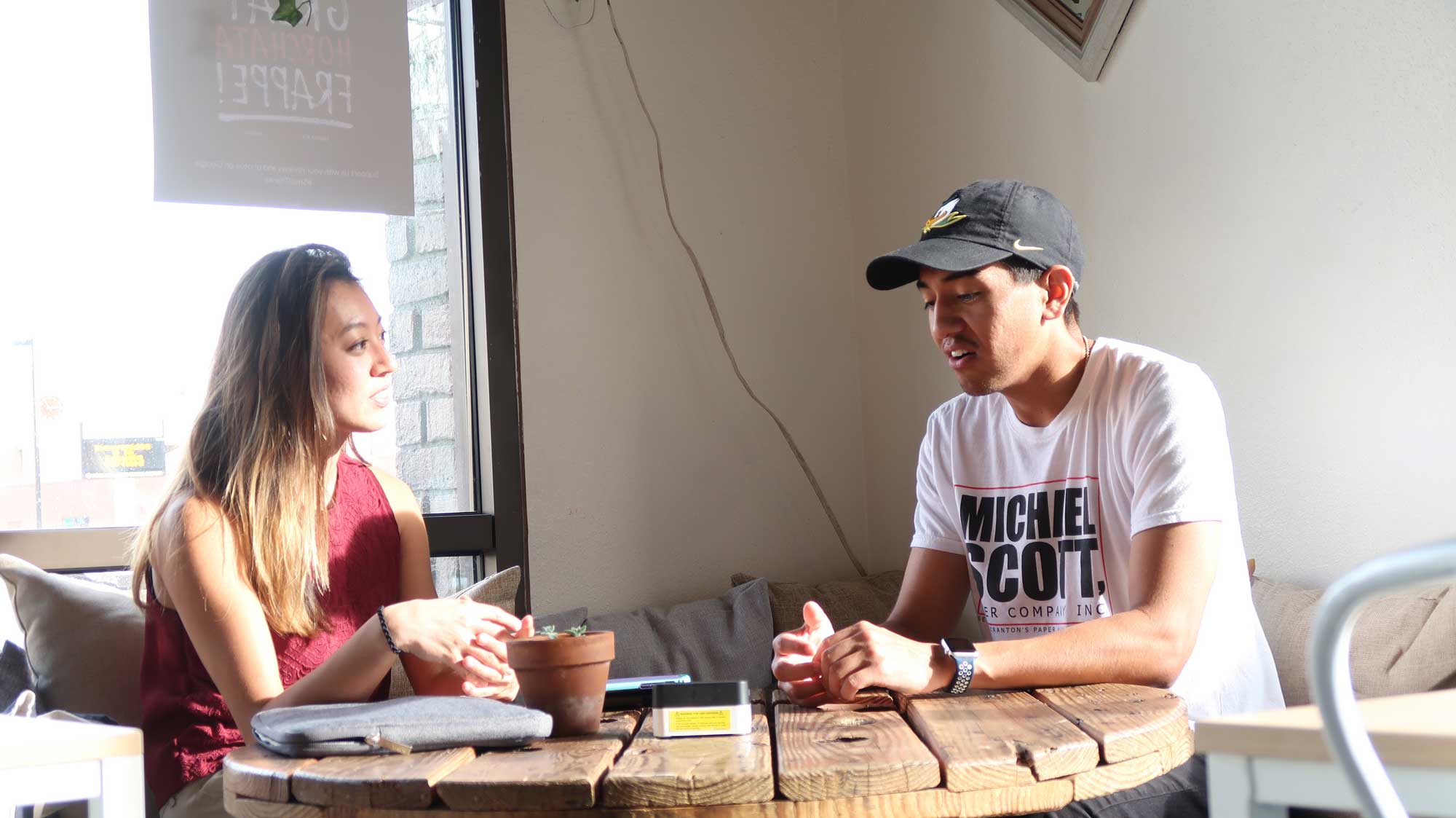
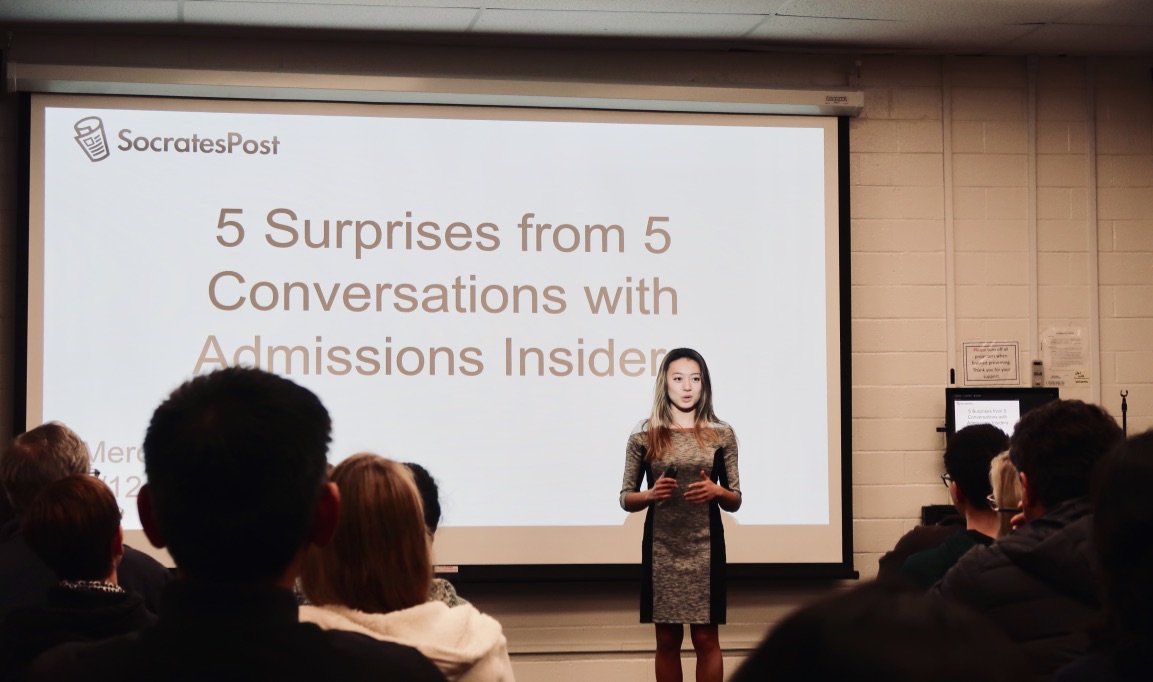
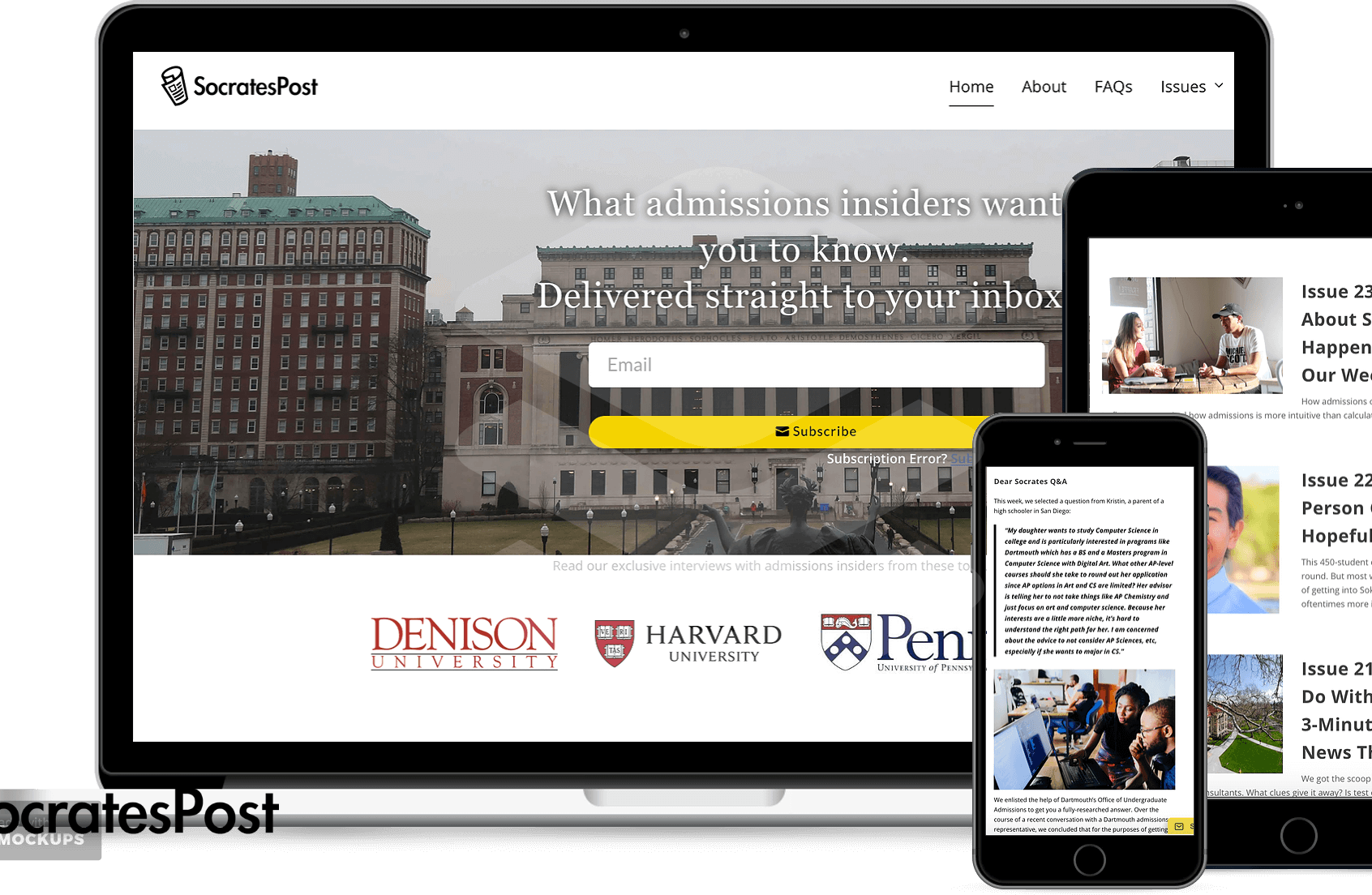
FAQ: What do applicants want to know?
Email Study: Hottest College Admissions Topics
2019 Special Projects Recap
Editor’s Note: 2020 Outlook








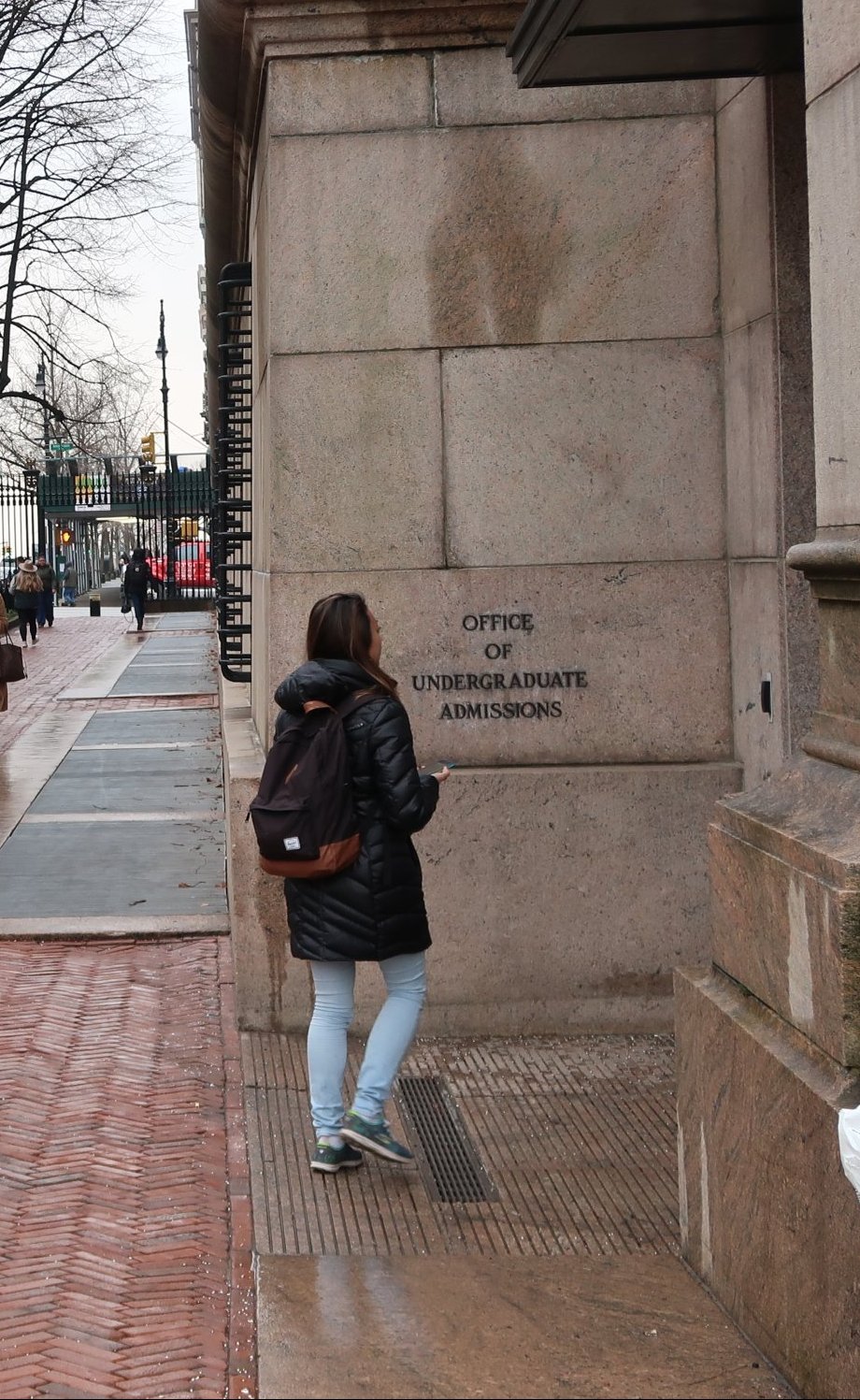


What Colleges Want to See (34.6%)
The questioner asked how their performance would be considered by colleges.
Examples:
“Is this something that will hurt her chances?”
“Would you consider this impressive on my application?”
“Do I have any chance to get in…?”
School-specific (19.2%)
The questioner name-dropped a specific school, asking only about that school’s processes. “Would you consider this impressive on my application?”
“Do I have any chance to get in…?”
Standardized tests (13.5%)
The questioner asked about either SAT, ACT, AP, IB, or other similar standardized tests.”Do I have any chance to get in…?”
Application-specific (11.5%)
The questioner asked about how to fill out a specific part of their college app.”Do I have any chance to get in…?”
Extracurriculars (9.6%)
The questioner asked about summer programs, school clubs, or resume-building.”Do I have any chance to get in…?”
School grades (7.7%)
The questioner asked about class rigor, minimum GPAs, or high school course selection.
Editor’s questions (3.8%)
SocratesPost asked readers a question.
Applicants and parents care most about how colleges evaluate their personal profile.
Every admissions insider we interviewed shed light on the attributes that impress them the most. But the large share of questions pertaining to what admissions insiders want to see indicates that applicants want more personalized advice on what they specifically should do. The also sizable share of school-specific questions points to the fact that college hopefuls often have their sights set on specific institutions and may not spend enough time exploring options.







Applicants and parents are most likely respond to name-brand schools. These subjects mentioning Stanford, Duke, USC, and Ivy resulted in the largest share of email opens in 2019.
Through our interviews with insiders at online colleges, trade or art schools, and military schools, we aim to open applicants’ minds to non-traditional forms of higher ed. While we’ve garnered interested in those subjects through insider personal stories, stories from big-name institutions still attract more reads. The cost? Possibly very suitable colleges are overlooked.








Not all featured interviewees read or decide on applications. When it involves a name-brand school, readers find value in a variety of insider perspectives, including, in this case, parents of admits, current students, and alumni interviewers. All three of these institutions admit fewer than 35% of applicants. Stories from individuals affiliated with these schools, not just admissions professionals, are hard to come by. Angles from non-professional insiders like students and alumni are therefore similarly valued.
Note: We ranked popularity by ranking the highest share of clicks on the interview link.
Applicants and readers care about the Ivy Leagues.
Stories about current events of college campuses have been least popular, signaling readers’ hyperfocus on getting their resumes prepped and apps submitted, but not on what life might look like after they get into college. Concentration is important, but applicants might be overlooking real, timely snapshots of campus culture that could sway their decision to matriculate or even apply.
Note: Voting was introduced in September. Prior issues are excluded from this ranking.
admissions director (until May 2019), Justin clark:
“We wouldn’t have a job or a career if it wasn’t for the students that we’re bringing in. So, you need to tell us what we need to do, you need to teach us about things that we may not know, you need to call us out on biases that we may not be aware of.”


Admissions director, deborah foell-mcdowell
“For me, it’s more interesting if there is that C on the transcript and the teacher talks about how it wasn’t your favorite subject and it was a challenge for you, but you still showed up, you did the work, you went above and beyond.”


Admissions director, jesse tomczak
“We want to hear a 17-year old voice. We don’t expect that you’ve participated in every activity and been a leader in everything…We want the student to present a dynamic and flawed 17-year-old. Students get it in their head they need to be perfect…That’s not the case.”
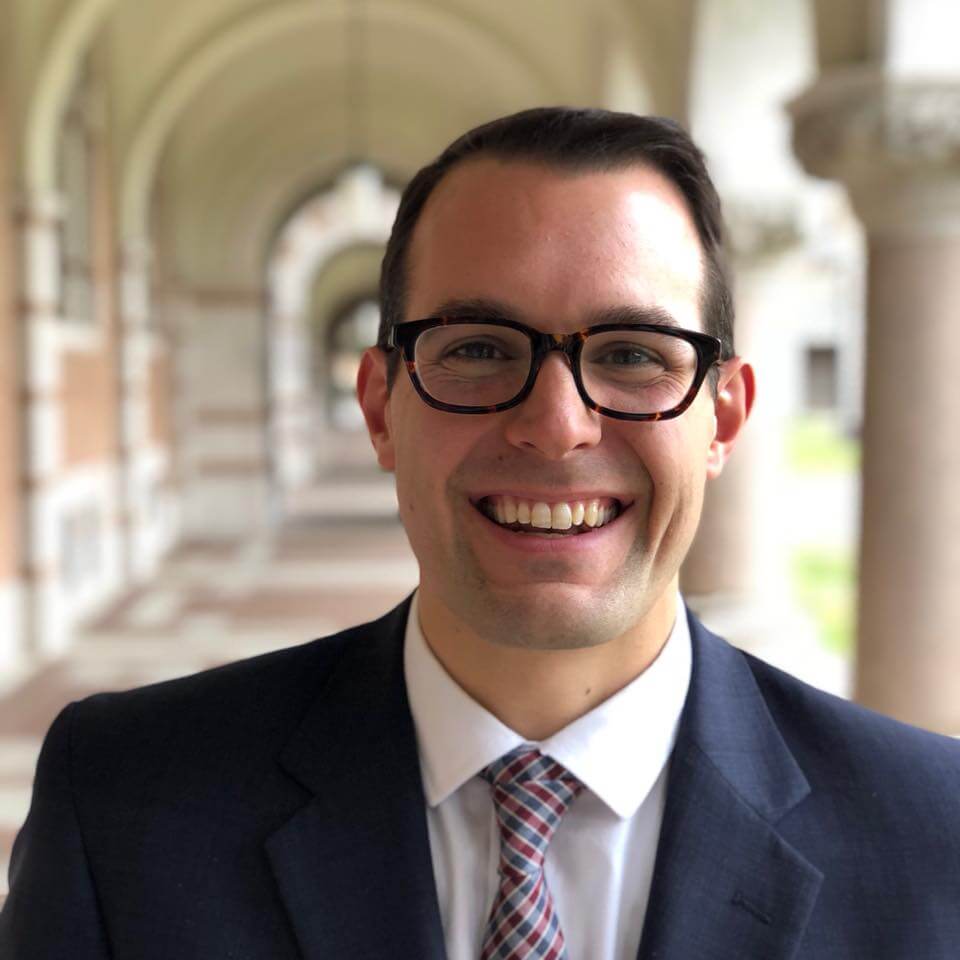
From Northwestern to CMU to AU, all admissions directors are telling us the same thing: they don’t want perfection — they want flawed dynamism. Among consultants, parents, and applicants, this message often gets buried under the media frenzy, enrollment marketing materials, and peer pressure to be perfect. The most dynamic individuals are the ones truest to themselves.
Ironically, given our data from the DearSocrates advice column, readers still tend to reverse-engineer admissions by first seeking what admissions officers want to see, then acting accordingly. This mismatch is tough to balance out because applicants don’t want to waste time doing something fruitless toward their end goal. However, applicants might be overly stressing themselves trying to plan backwards. Getting into the right college (or deciding not to attend altogether) should be an organic by-product of pursuing lifelong growth.
In review: 2019 special projects
When we’re not sourcing new interviews and digging into the latest college admissions happenings, we’re out in the world sharing our knowledge, shifting minds away from the frenzy of the admissions race, and encouraging global critical thinking about the college journey.
PODCAST GUEST
Maxine represented SocratesPost on an episode of Admissions Live, talking about the trends in higher ed enrollment and marketing. November 2019.
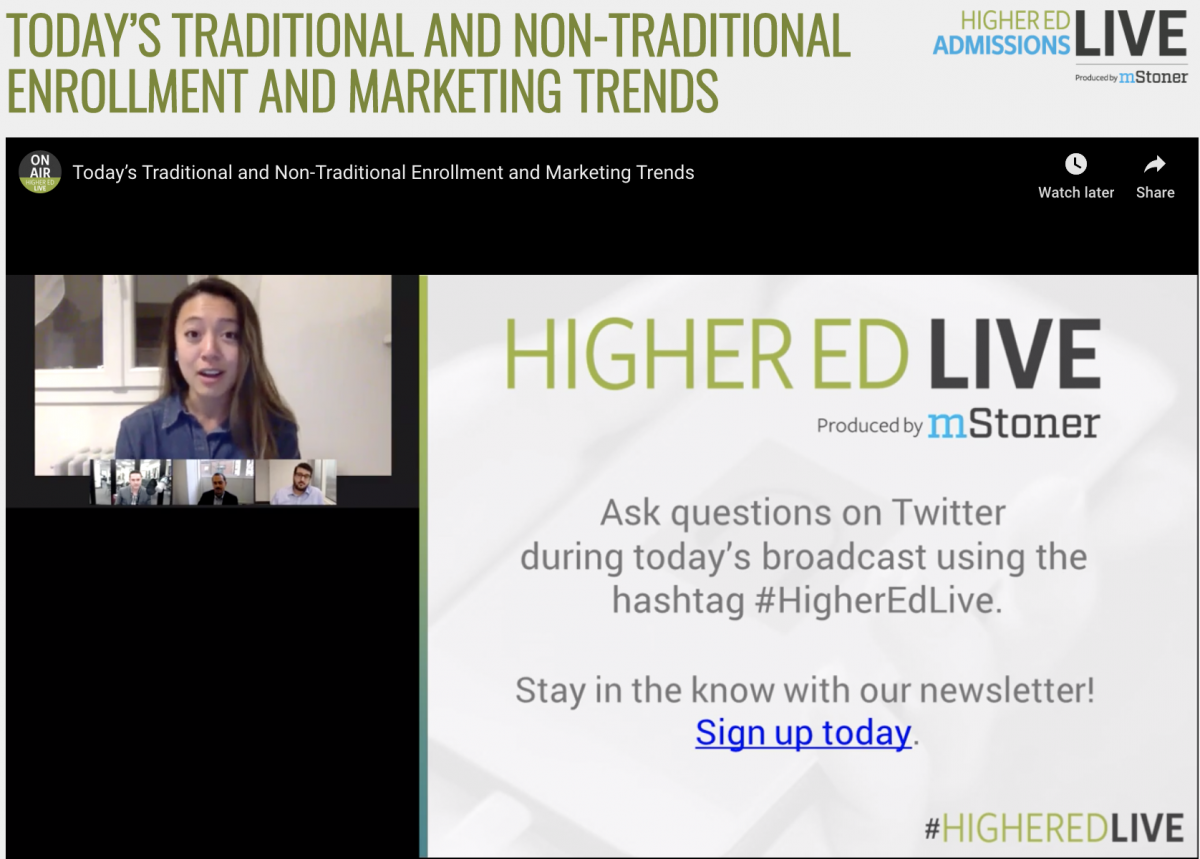
NYTimes feature
Maxine was featured and quoted in the NYTimes for her advice on college. Oct. 10, 2019.
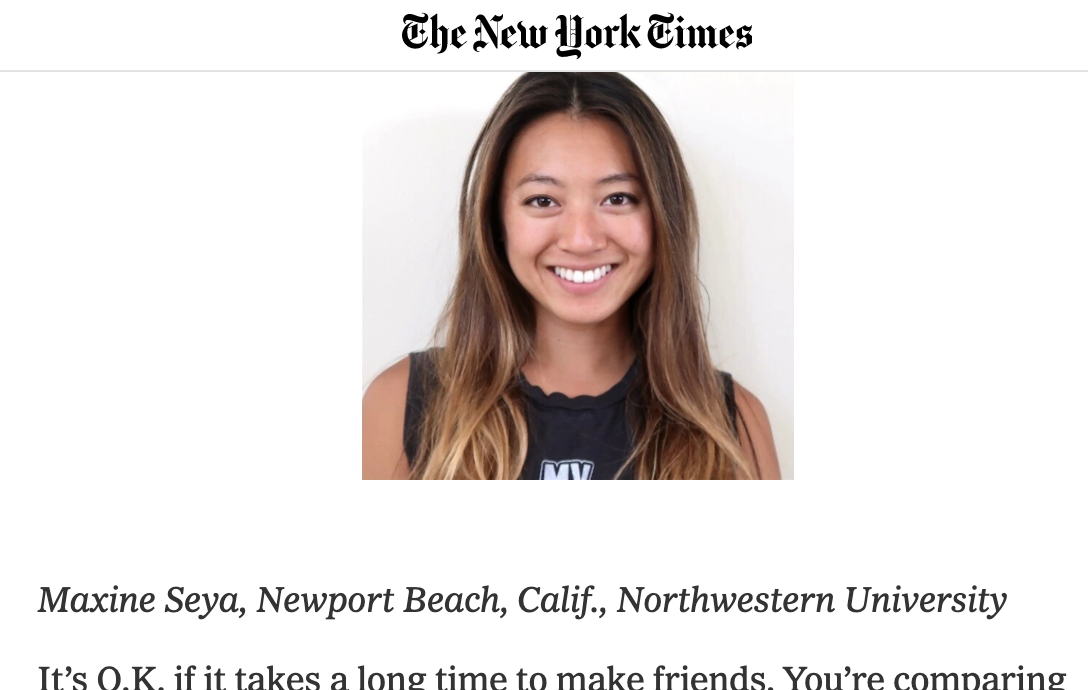
U.S. State Dept Speaker
We joined the U.S. Department of State as a seminar speaker at their Career Connections conference leading discussions with young professionals on media literacy. July/Aug 2019.
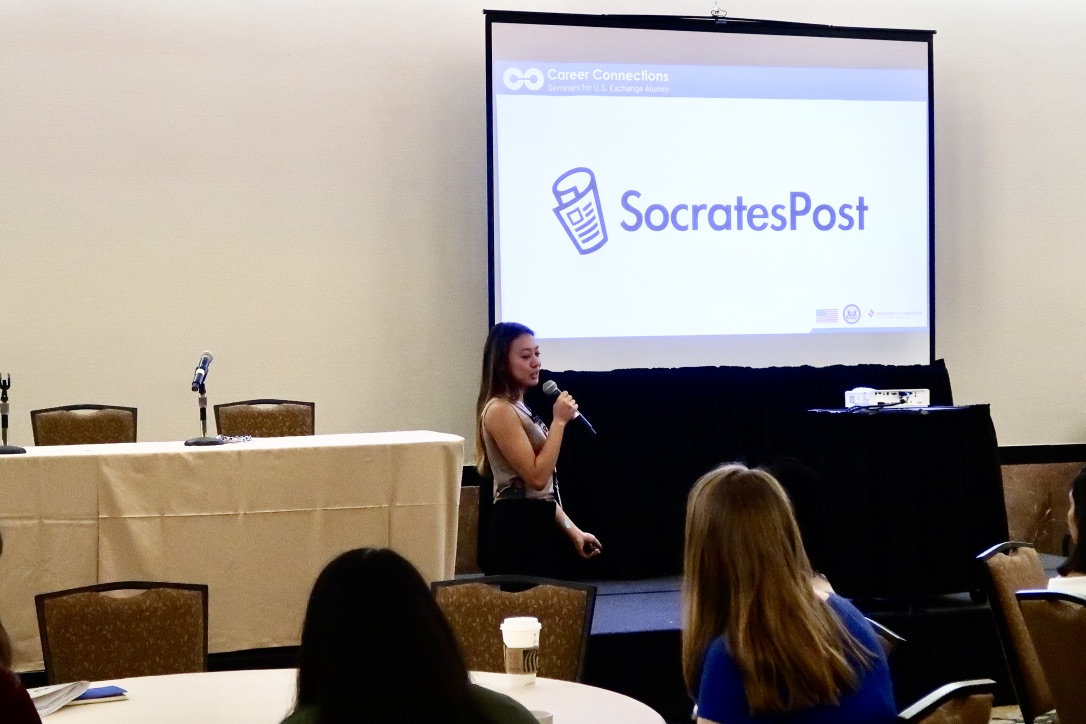
PTA speaking Tour
SocratesPost gave presentations to a series of high schools, sharing the important admissions lessons learned from insider interviews. February/March 2019.

NYC TOUR
SocratesPost visited NYC to score insider interviews from schools like Columbia, Barnard, Cooper Union, and NYU. January 2019.
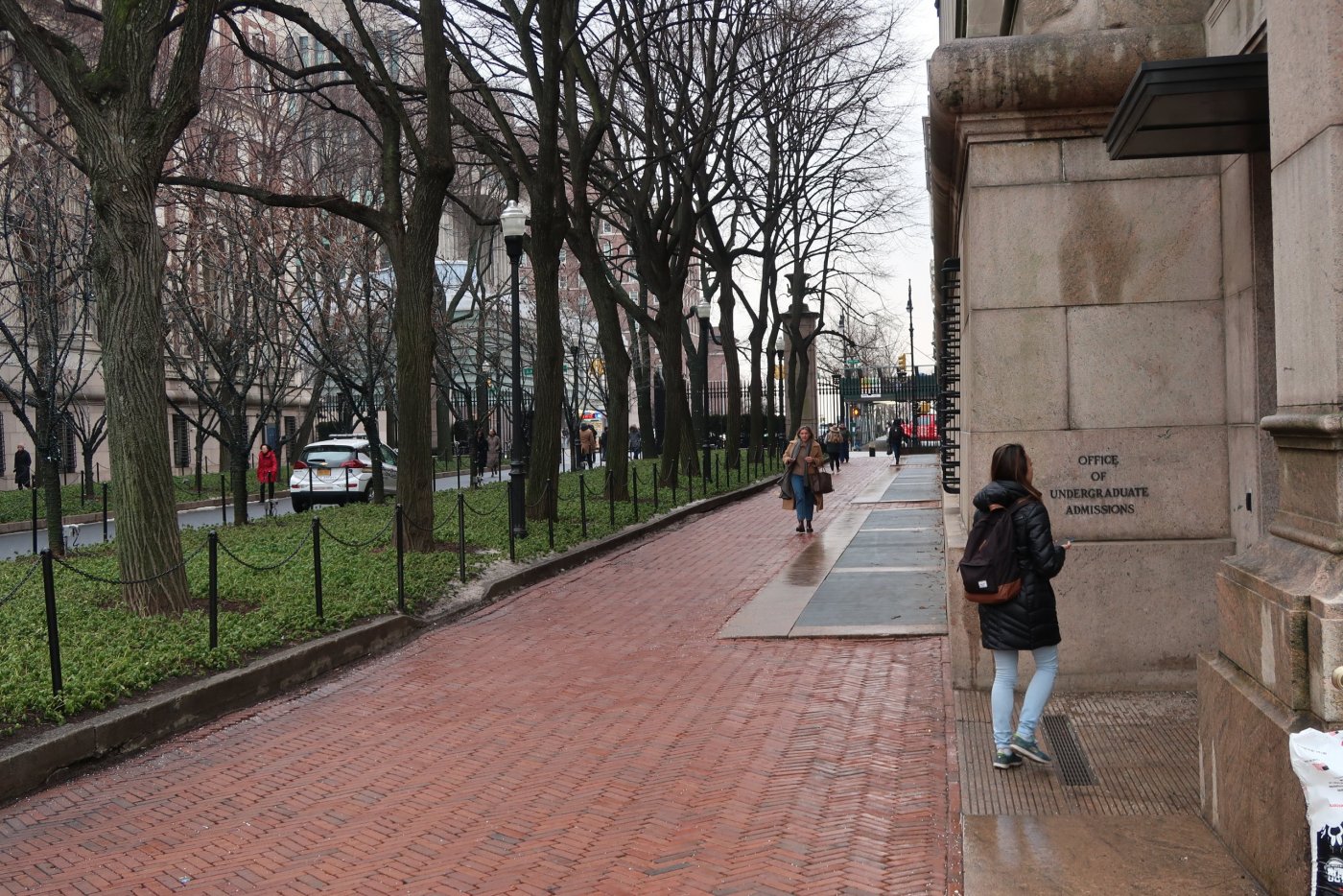
2019 in Review
I’d always wondered why applying to college elicited more questions like “how many activities should I do to get into X college?” and fewer questions like “what is its purpose in my life?” or “what common beliefs about college have I adopted without first understanding if they pertain to me?”
SocratesPost launched in 2018 with the vision of using journalism to inspire college applicants and their families to approach college admissions the Socrates way: inquisitively and introspectively.
In 2019, we published some half a million words that followed this mission. Through the insights and lessons shared in this report, I noticed something. While people want to learn about college, they see the admissions process as the final challenge and the ultimate admittance as the end of the journey. We see it differently. With the essays, interviews, and decisions to make, the admissions period sparks the initial learning on how to reflect. Equipped with that mindset, life then begins.


What’s next in 2020?
You might’ve noticed the words “College Counselors’ and Consultants’ Edition” on the front page.
We compiled this report with those individuals in mind. Their human connection with students can incite big transformations. Mentors like them help students and their families see that college isn’t the end goal, but just the beginning.
If that’s you, your work is powerful. SocratesPost is here as a resource for you as you inspire and guide more students in 2020.
